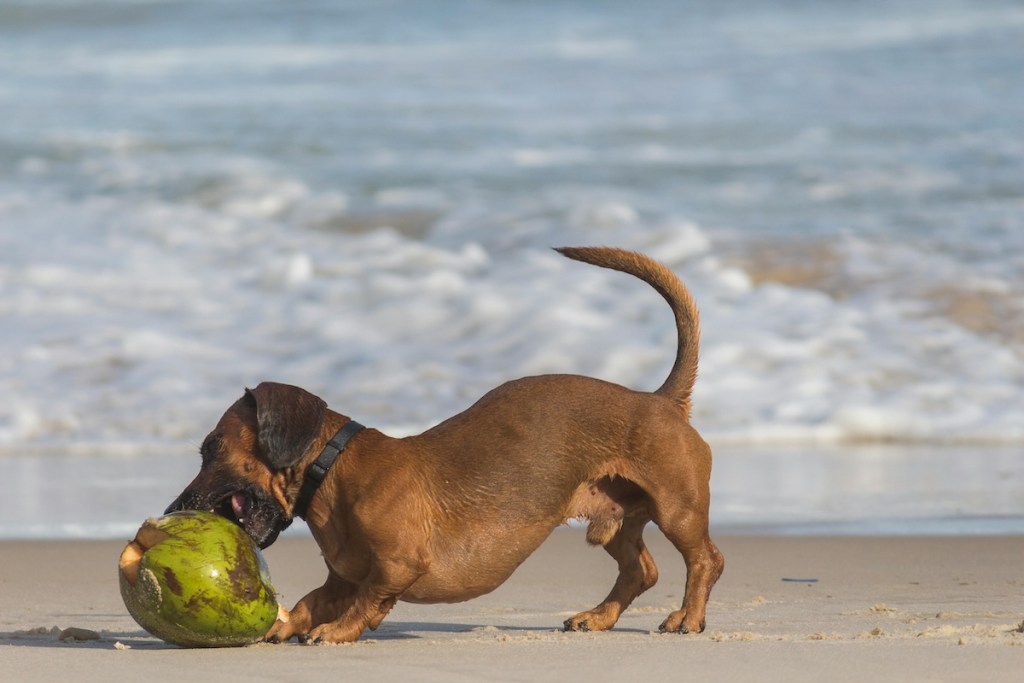No matter what’s on the menu, you can all but guarantee that your dog will want a piece. While it’s OK to share a small bit of chicken now and then, you do need to be careful about what goes into your pup’s stomach. After all, there are some things, like chocolate and grapes that are poisonous to canines, even if they’re delicious to humans. But what about other foods? can dogs eat coconut? We walk through everything you need to know about feeding your pet this fruit.
Can dogs eat coconut?

Yes, they can! Dogs can eat both coconut and coconut oil in moderation. As with all treats, you want to limit this to a small portion of their daily food intake, about 10% and not every day. Like just about all fruits, there is some sugar in there, so you don’t want to overdo it.
Also, some pooches will have trouble digesting this snack. Start with a very small amount and keep a watchful eye (and nose) on them to ensure that their bellies don’t seem troubled. When feeding this fruit, take the hard shell off first and just provide the meat. Those hard parts can cause choking and don’t taste very good either.
What are the benefits of coconut?
Good news — in addition to being yummy, coconut does provide some health benefits for your beastie. Remember that regardless of the beneficial properties, this is still a treat. Your pet’s diet should be 90% dog food. Here’s how coconut might help them out, though.
Decreases inflammation
Inflammation has many negative effects on us and our animals. In lab studies, coconut helped reduce swelling. This can be especially beneficial for dogs with arthritis.
Boosts immune system
While we can’t prove that coconut cures anything in particular, it does give the body a boost because of all the antioxidants. That means you can reach for this delicious snack any time your pup pup is feeling a little off.
Benefits skin
In addition to consuming it, you can use coconut oil and coconut-based shampoo on your buddy’s skin and fur to help reduce itching, yeast infections, and flea allergies. Only buy pet-safe products for your doggie.
Sharing a treat with our dogs is fun for both parties and encourages bonding. Next time you decide to buy coconut meat, think about giving a bit to Fido., though maybe not while you’re at the dinner table. Remember, if you offer some coconut, make sure it’s not preserved and doesn’t have added sugar, salt, or spices. Carefully limit this snack, especially the calorie-dense milk that could easily cause them to put on a few pounds. Your buddy might go on to decide that coconut is his favorite nibble.




